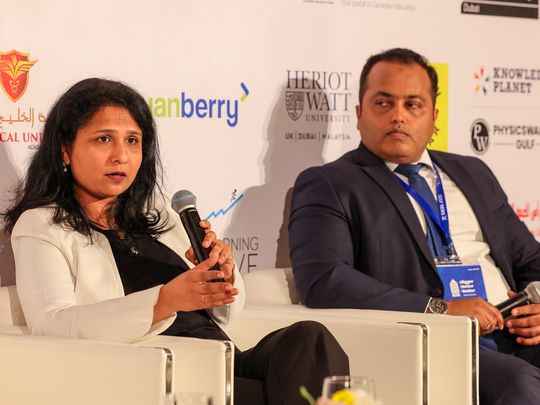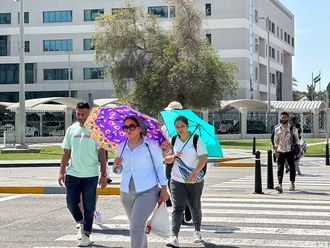
As a wave of new technologies reshapes job markets worldwide, expertise in a specific field is no longer sufficient. Students now need a range of transferable skills to succeed in the modern workplace, emphasised panelists during a seminar titled, Tech-Driven Future: programmes that prepare students for careers in the digital age, at Gulf News Edufair 2024.
“Students should possess a well-rounded skill set, encompassing both subject knowledge and soft skills. While subject expertise is crucial in tech careers, effective communication is equally important. Soft skills such as teamwork, leadership, and empathy are indispensable in navigating the evolving landscape,” said Renuka Nyayadhish, Programme Leader & Senior Lecturer, Software Engineering, University of Bolton, Academic Centre, Ras Al Khaimah, one of the panelists at Edufair.
Technology education is rapidly evolving, and universities in the UAE are adapting by incorporating new elements into their curricula. “This ensures that students not only master the fundamentals but also stay updated with emerging technologies. For instance, in fields like AI and data analytics, a solid foundational knowledge is crucial,” said Abdul Razzak, Manager - Career Services, BITS Pilani Dubai, another panelist at Edufair, adding, “To enhance this, universities offer internship programmes that provide students with industry exposure and the opportunity to work on live projects with industry specialists. The combination of strong academic grounding and practical experience equips students to succeed in the ever-changing technological landscape.”
BITS Pilani Dubai prepares its students by providing a strong foundation in the field of engineering, industry exposure, and training in new technologies through micro-programmes and certifications, said Razzak.
Courses to choose
When advising students on course selection, Razzak recommended opting for programmes that provide a competitive edge in the job market. "Popular courses include engineering, mathematics, and computer science, especially with relevance to AI," he noted.
“AI-related programmes require a strong background in algorithms, statistics, and math. A combination of mathematics and computer science is ideal for roles in data science and related fields. For instance, while hiring for a position in data science, recruiters prioritise candidates with a solid background in both mathematics and computer science,” he pointed out.
Furthermore, programmes focusing on algorithm development and AI research are also in demand. Quantum computing is also gaining traction, with companies looking to recruit candidates who possess a strong foundation in computer science, math, and physics. These areas offer promising career prospects for students with backgrounds in computing and mathematics."
Both Nyayadhish and Razzak highlighted the significance of lifelong learning to advance in tech careers.
“Continuous learning is essential in staying relevant in today's rapidly changing world of technology. Regardless of years of experience, technology professionals must actively pursue certifications and update their knowledge and skills regularly. This applies across various fields, from computing to electronics, chemical and mechanical engineering. Embracing new technologies and staying aligned with industry trends ensures professionals remain competitive in their careers.”








